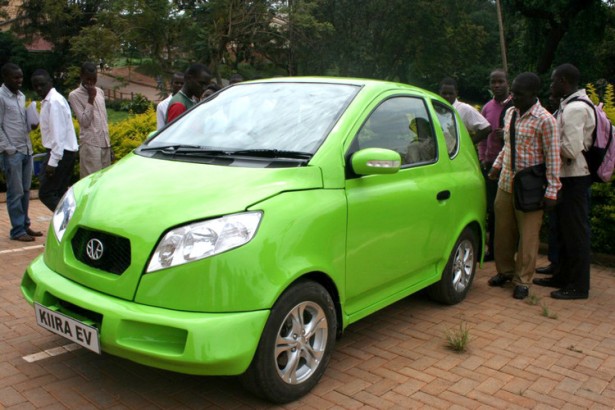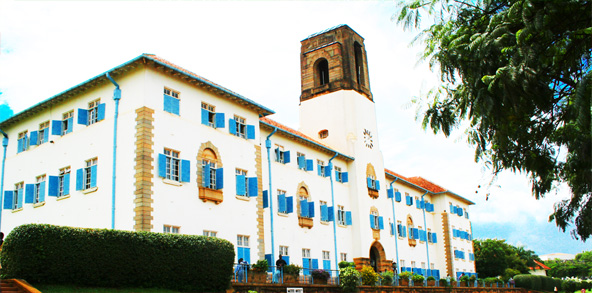
Makerere University is one of the oldest and most prestigious universities in Africa. Located in Kampala, Uganda, it’s been providing students with first-class education for the past 90 years, including my beloved Ugandan teammate Komakech Lawrence, who graduated from the university in 2005 and boasted about it’s academic superiority throughout our tour this past fall.
Makerere made international headlines last year after the university’s College of Engineering Design, Art and Technology conducted a 2.5 mile test-drive of the Kiira EV – the county’s first electric car. In ideal conditions the lithium charged vehicle can reach 62 mph and travel 50 miles before needing to recharge. While it’s no Mercedes Benz SLS AMG, it’s a huge accomplishment in engineering for Uganda. The country was ranked 161 out of 187 in the most recent Human Development Index. However, for an economy that continues to improve each year since the LRA was forced out of the country half a decade ago, the Kiira EV is a symbol of advancement and ingenuity for Uganda.
President Musevini’s visit to the college three years ago was crucial in the Makerere’s ability to produce the car, which cost $35,000 to build. It was shortly after that visit that Museveni announced a $10 million dollar grant to fund university research projects. With that grant and the success of the Kiira EV, students went a step further and designed a prototype for a 37-passenger solar bus – The Kayoola. It’s expected to be completed in June.

Last week, the university once again made international headlines after announcing that it was working on a prototype for a smart phone. The Pearl, as the six undergraduate students working on the project have named it, will be fully functioning by the beginning of the summer (our summer, their winter). It will feature GPS, weather sensors, and other capabilities that will aid farmers in the country’s agriculturally-based economy. They hope to begin mass producing the product soon after its intial release.
The university’s continued focus on innovation has attracted research funding from all over the world, and continues to be a beacon of technological advancement for all of East Africa. Invisible Children is proud to have several Ugandan staff members, including Komakech Lawrence – a mentor for the Legacy Scholarship Program, who call Makerere their alma mater.
(Photo credits: Makerere University)
Think people should hear about this?